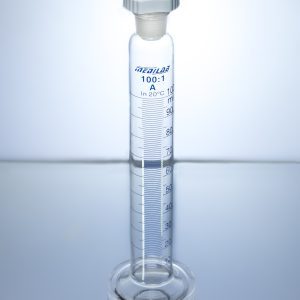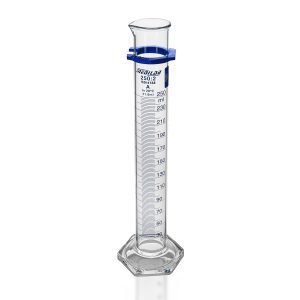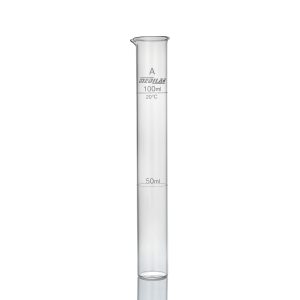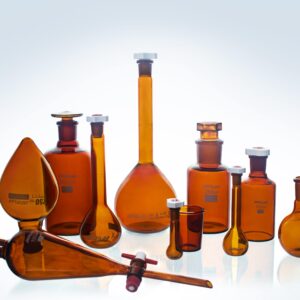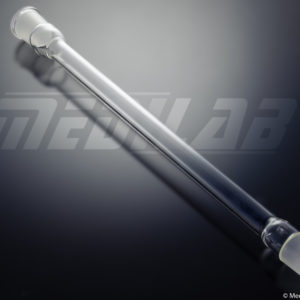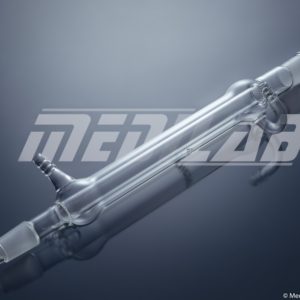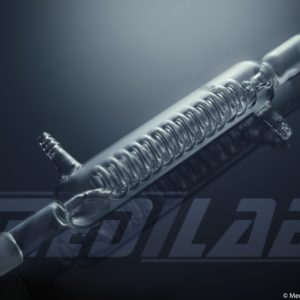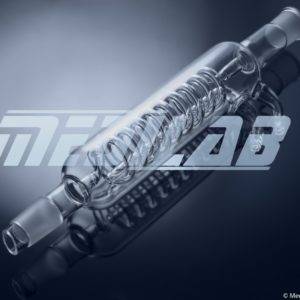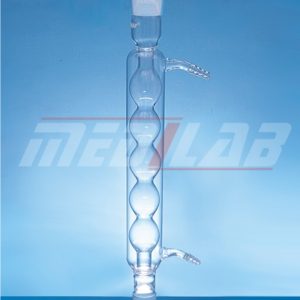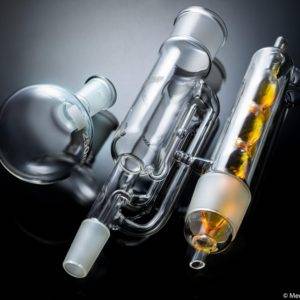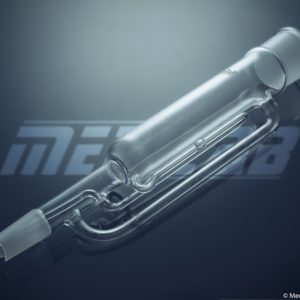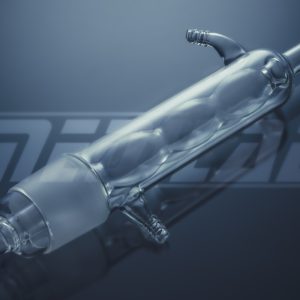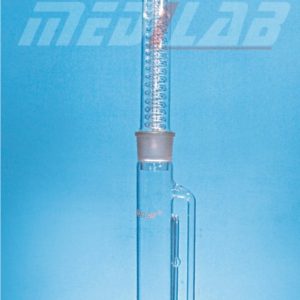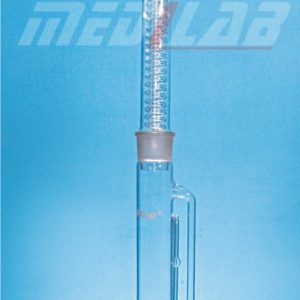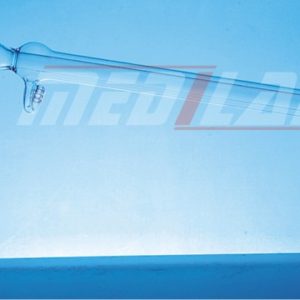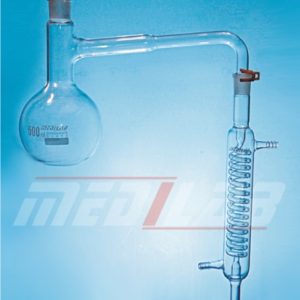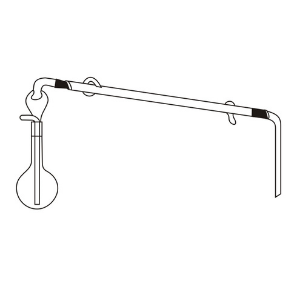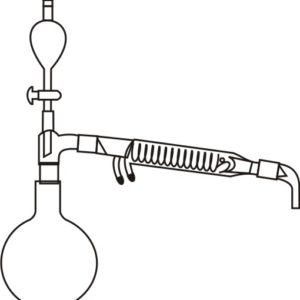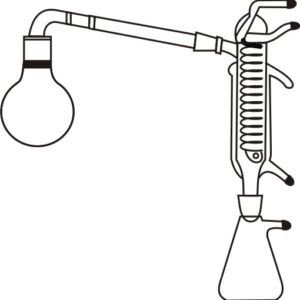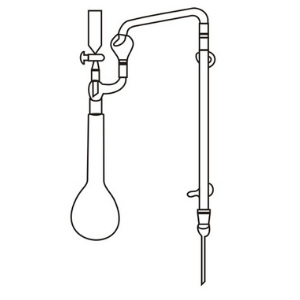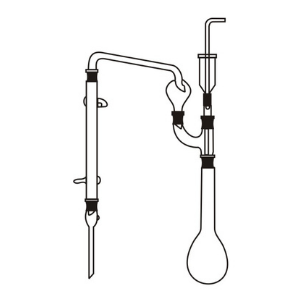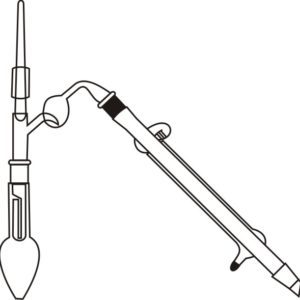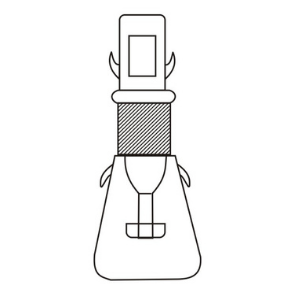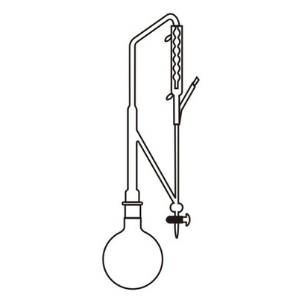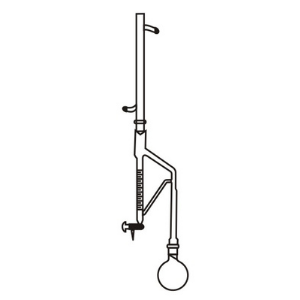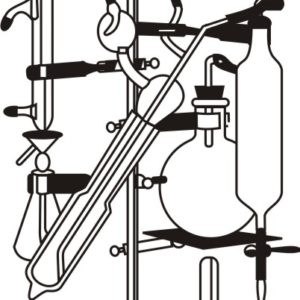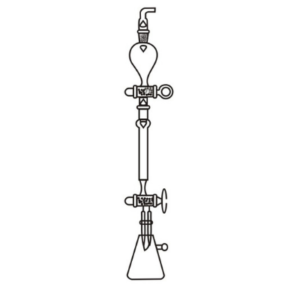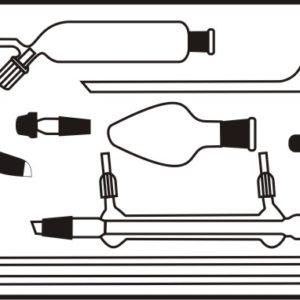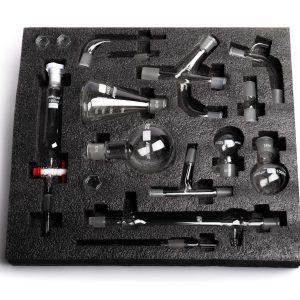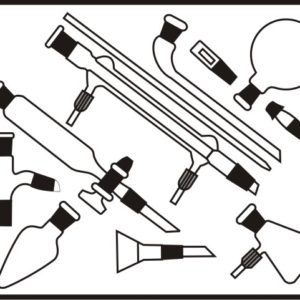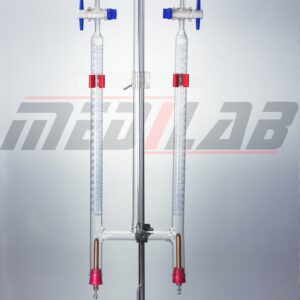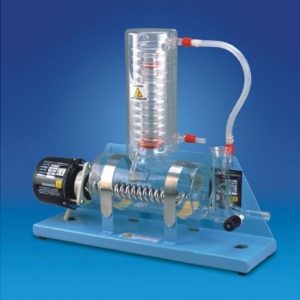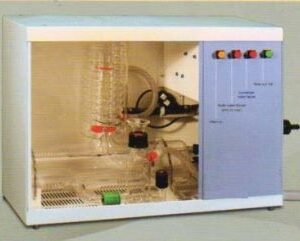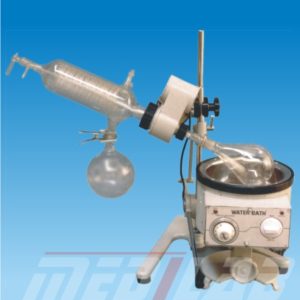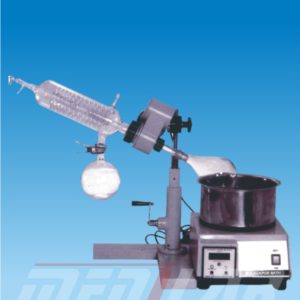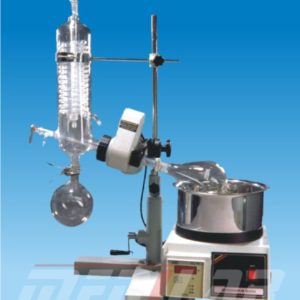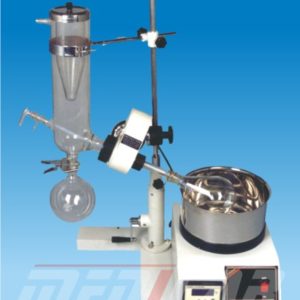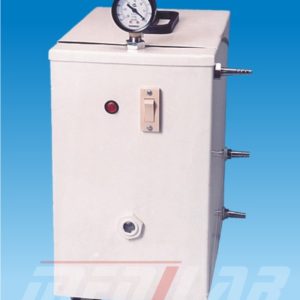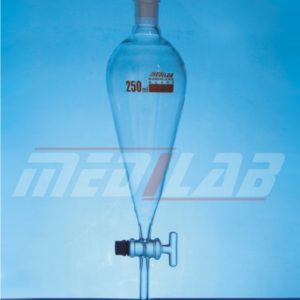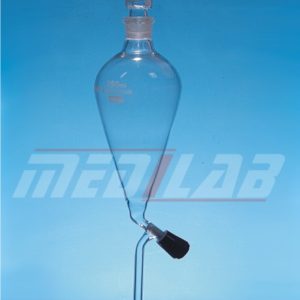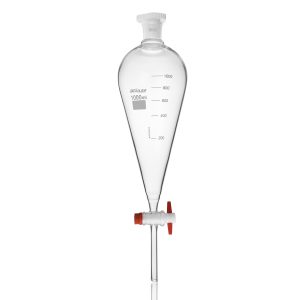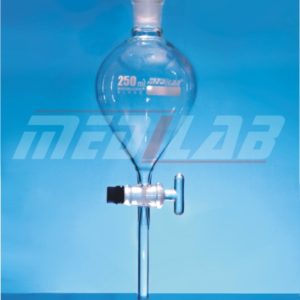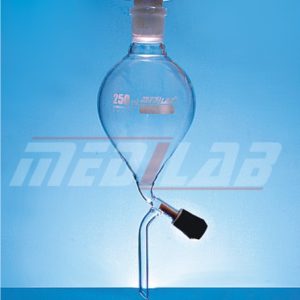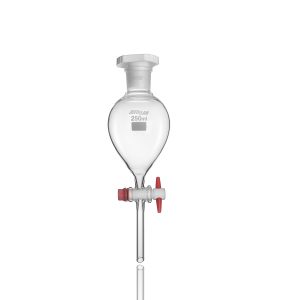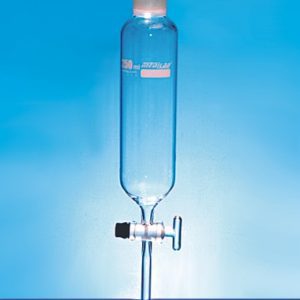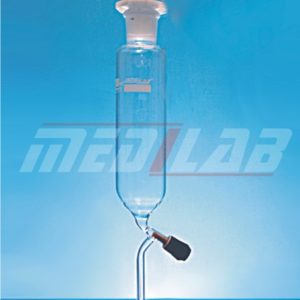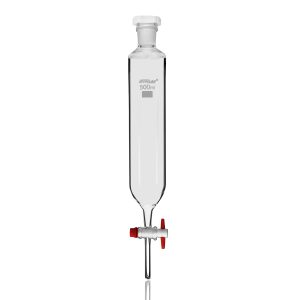MEDILAB – Lab Glassware Manufacturer and Supplier
Your one-stop shop for laboratory glassware needs!
Laboratory Glassware
One of the most fundamental and typical necessities for every educational, analytical, research, or pharmaceutical laboratory is LAB GLASS (laboratory glassware), which is also known as Laboratory Glassware or Scientific Lab Glassware.
It is often used in chemistry laboratories and is also referred to as chemistry glassware. It is used for a variety of applications in a laboratory like – filtration, distillation, storing chemicals or specimens, measurements, analysis, and much more.
The majority of Glassware used in laboratories is made from borosilicate glass 3.3, a particularly hard and heat-resistant kind that possess properties like Low thermal expansion, High material strength And Chemical stability.
Lab glassware needs to be cleaned right away after use, to get rid of any chemical residue that could harden and break the glass.
Let us tell you about the types of glass and different types of glassware used in the laboratory. We will also tell you why we are one of the best lab glassware suppliers in India and to many other countries.
Types of Glass Materials
Lab glass may be created from a variety of glass materials, each of which has unique qualities and is utilised in a variety of ways in laboratories.
3.3 Glass Borosilicate
The most typical form of glass used in labs is called “Borosilicate 3.3 Glass,” which is clear, resistant to chemical assault, and able to sustain thermal shocks. When high pressure or a vacuum are needed, lab glass with a thicker wall is often used.
Amber-Coloured Glass
Amber Colored Glass, a different sort of glass with a basis of borosilicate glass (3.3), is a darker brown borosilicate glass. It has all the characteristics of borosilicate glass, including a darker brown surface that may block infrared and ultraviolet rays. It is often used to make glass storage bottles for reactive chemicals.
Soda Glass
One of the most common varieties of glass, soda glass, is used to make glass containers for food, drinks, and several other common commodities. This kind of glass is less expensive, has a surface that is uneven, and has a high coefficient of thermal expansion. Consequently, usage in any laboratory application is less favoured.
Quartz
Quartz is a form of glass that can resist extremely high temperatures but is not particularly cost-effective. As a result, it is only useful for certain tasks or laboratory work that necessitates operating at a temperature of greater than 6000 °C.
Scientific Glassware & Their Applications
For more than three decades, MEDILAB has maintained its position as one of India’s top-notch scientific laboratory suppliers. Let us walk you through some of our products in laboratory glassware.
Beakers
Beakers are versatile glass containers that serve many purposes in the laboratory, from holding chemicals during a reaction to heating liquids over an open flame. Most beakers include engraved graduated volume measures, but they are only estimates that can be off by as much as 5%, rendering them unsuitable for use as a precise measuring instrument. Medilab Exports Consortium manufactures high-quality beakers in low, tall, and conical forms.
Erlenmeyer Flasks
There are several varieties of flasks. An Erlenmeyer flask is one of the most popular in a chemistry lab. This kind of flask has a flat bottom and a small neck. It works well for heating, heating up, and spinning liquids. Both a beaker and an Erlenmeyer flask are appropriate containers in some circumstances, but if you need to seal a container, it’s far simpler to place a stopper in an Erlenmeyer flask or cover it with parafilm than it is to do so with a beaker.
There are many sizes of Erlenmeyer flasks. These flasks may or may not have volume markings, just like beakers. They are within 10% of the true value. Medilab manufactures all kinds of Erlenmeyer flasks with narrow and wide necks.
Boiling Flasks
A spherical, thick-walled flask with a small neck is known as a Florence flask, sometimes known as a boiling flask. To survive heating from a direct flame, it is usually made of borosilicate glass. The flask’s neck has a clamp hole that enables safe holding of the glassware. While the capacity of this kind of flask may be measured precisely, the measurement is frequently not stated. We manufacture these high-quality flasks in 250ml and 500ml capacities.
Volumetric Flasks
Solution preparation is done in volumetric flasks. Each flask has a little neck with a marker, often for a single specific volume. A glass Volumetric flask is not intended for heating since temperature changes cause materials, including glass, to expand or contract. This flask can be capped or stoppered to prevent evaporation from altering a solution’s concentration. You can go through our collection of volumetric flasks on our website and select the one you would like to order. We manufacture class A volumetric glassware and class B volumetric glassware.
Funnels
If you need to transfer chemicals from one container to another without making a mess, a glass funnel is an excellent choice. You can even get one with a filter built in so you can use it to sort out solids from liquids. Filtration and extraction can also be performed with the help of a special type of funnel called a separatory funnel. These funnels have a closed body with a bulb-shaped top with a stopper at the top to prevent spillage when the funnel is inverted, and a stopcock at the base of the spout to gradually reduce the pressure inside the bulb. We manufacture funnel filtering, funnel powder, funnel Buchner, and Buchner funnel with drip cones. All of our products are made of high-grade borosilicate glass in compliance with international standards.
Graduated Cylinders
The amount of liquid may be accurately measured with the use of graduated cylinders, which are tall, cylindrical containers. While they are much more precise than beakers (to within 1% of real volume), volumetric flasks are still not utilised for very precise quantitative studies of fluids. In the event that a graduated cylinder is knocked over, the glass within will not shatter on the workspace because of the “bumper ring” that surrounds it. Maximum safety can be achieved by installing bumper rings close to the top of the graduated cylinder.
Medilab manufactures measuring cylinders with screw caps, mixing cylinders, and Nessler cylinders in various modifications.
Pipette
A Pipette is a device used to deliver exact volumes of liquid from a container. Three types of Volumetric Pipettes are Volumetric Bulb Pipettes, Mohr Pipette and Serological Pipette. Mohr and Serological pipettes contain graduations through their length that allow the lab worker to draw a certain volume of liquid and whereas, in a Volumetric Bulb Pipette, it has an engraved marking on its nominal volume and has a bulb shaped center. It is common practice to use a squeeze bulb to transfer liquid into a pipet. To draw out a certain volume of fluid from a solution, a lab worker will compress the bulb, dip the open end of the pipet into the liquid, and then release the bulb. ‘Medilab’ manufactures Class ‘A’ Pipettes, provided with certificate of calibration.
Crystallisation Dish
A crystallising dish has a large diameter and a low height, much like a wide beaker without a spout. Its huge surface area makes it possible for the solution to evaporate more quickly, which is essential for the compounds to recrystallize. A crystallisation dish is often used as a temporary container for water, acid, or oil in a number of bath operations.
Burettes
The burette is a glass tube that has been calibrated with a valve at one end for exact distribution. These are often employed in many different titration tests. ‘Medilab’ manufactures Class ‘A/AS’ Burettes, provided with certificate of calibration.
Test Tubes
The collection and storage of tiny samples is best done with test tubes. For exact volume measurements, they are not frequently employed. Compared to other kinds of glassware, test tubes are reasonably affordable. Glass Test Tubes are made of borosilicate glass 3.3 and can be used for storing, heating, testing, sampling etc.
These can either be rimmed or non-rimmed, and are offered in various sizes.
Why Medilab?
Medilab Exports is one of India’s most prominent manufacturer and exporter of Laboratory Glassware and scientific laboratory supplier. In order to guarantee quality and safety of our products, all of our laboratory glassware is manufactured by highly skilled Glass Blowing technicians as per International Standards and goes through an array of strict quality checks to ensure the quality of our product delivered. We use the right and finest packaging materials to ensure safe and secure packaging of all our Glass products.
‘Medilab’ has been manufacturing and exporting its Glassware to more than 25 countries.
‘Medilab’ is one of the finest laboratory glassware manufacturers from India. Many different types of laboratories in the fields of education, testing, research, forensics, microbiology, biotechnology, and pharmaceuticals use the laboratory glassware we manufacture.
Our team of Glass Blowing experts produce complex glasswork to the highest standards. In addition to traditional flasks, stills, and other Glass lab equipment, we make custom glasswork as per customers requirement.
When it comes to the raw materials we use in our lab glassware production, we only trust the most reputable suppliers for Borosilicate Glass 3.3 Tubing.
We export a wide variety of standard glassware that meets the International requirements.
Contact Us
‘Medilab’ with its wide experience and expertise in this trade, is one of the leading laboratory glassware manufacturers in Ambala.
If you have any kind of query, please write to us at [email protected]
We will be glad to be of assistance.
